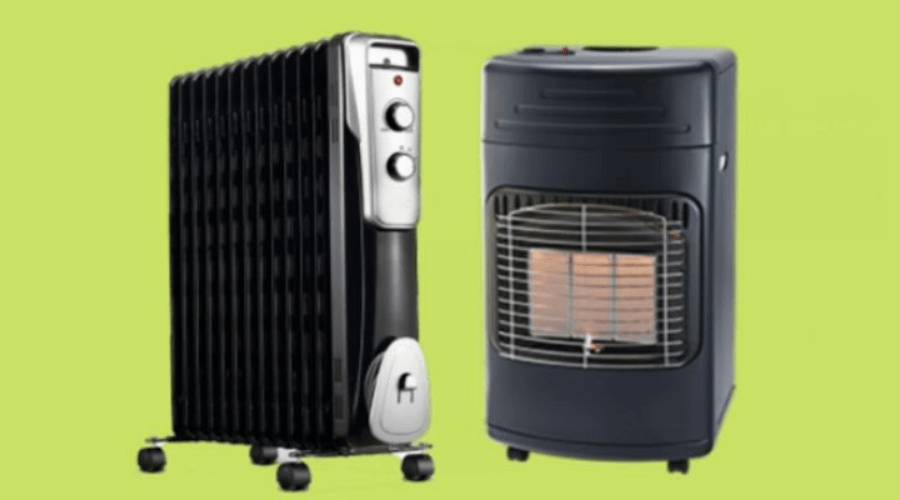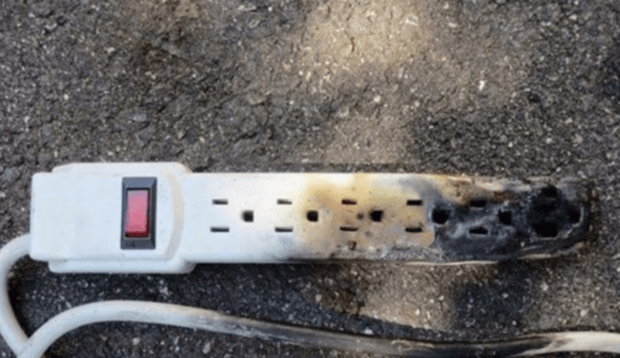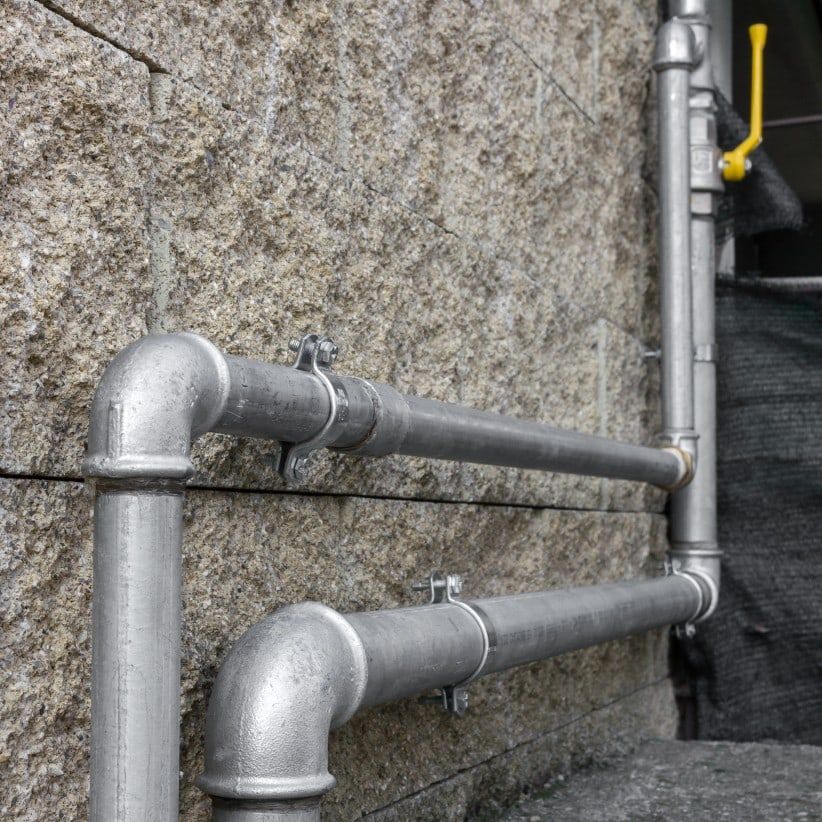Between decadent comfort food, beautiful snowfalls, and holiday celebrations, the winter has a lot going for it. What I could do without is the cold. Throughout the season, I'm plagued with unbelievably high heating bills, sudden overnight temperature drops, and an unbearably cold toilet seat on nighttime bathroom visits.
To keep winter fun, I've looked into numerous heating solutions for my home to bolster the central heating system. In my search, I've found electric space heaters and gas heaters to be the best heating options. What, you may wonder, is the difference between these two heaters? Which is more effective? Which is the most cost-efficient? How do they work? I will answer these questions and more in this gas vs. electric space heaters analysis.
A Closer Look at Space Heaters
Although the purpose of both gas and electric space heaters is to warm up your home, their similarities pretty much end there. They both have very different functions, capabilities, and designs, which means they have separate heating niches they thrive in.
Determine which is the best for your unique situation by perusing the comparisons below. I've outlined the different power capabilities, costs, maintenance requirements, and safety features to keep in mind when considering an electric space heater vs. a gas heater.
Space Heaters vs. Gas Heater Comparison
|
Space Heater |
Gas Heat |
|---|---|
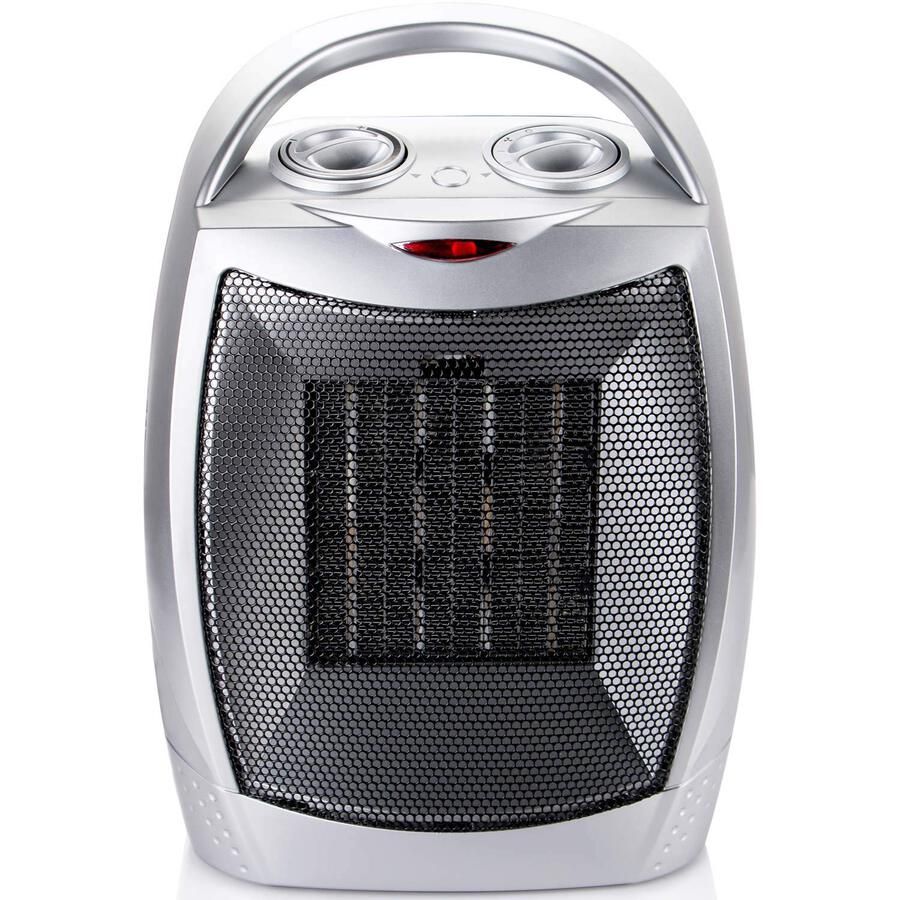
|
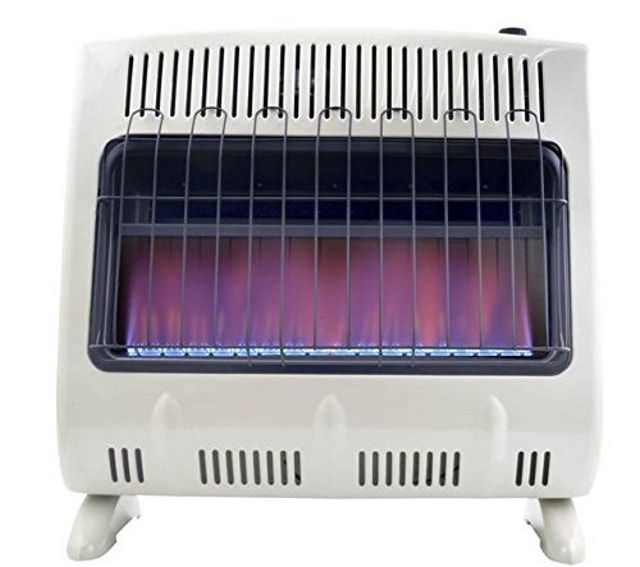
|
|
|
Space Heaters
When it comes to supplementary heating in the winter, space heaters are among the most popular heating systems, providing a low-cost, easy-to-use device that effectively warms up small spaces.
Credit: vagawi
Powering a Space Heater
Small space heaters provide a lot of heating power for their size, but their reach isn't unlimited. Typically, space heaters are powered by electricity and merely supplement central heat, not having enough power to warm numerous rooms or large spaces.
Space heaters are also a great option when the weather becomes gradually hotter during the spring, so you don't need central heat, but you still need a bit of warm air inside. Place your space heater in your bedroom, bathroom, or in common spaces you want to heat up.
Installing a Space Heater
When it comes to set-up, it doesn't get easier than installing a space heater. Why? Because space heaters require no installation!
Most space heaters come pre-built, so you don't even have to put work into constructing them. Space heaters are normally small and portable, so you can move them from room to room, depending on where they are needed.
Simply plug them in and enjoy the heat! But be warned: A space heater should never be plugged into a secondary power source, like a power strip or extension. Directly into the wall or not at all!
A post warning about the dangers of space heaters and power strips from Kaufman Fire Rescue Station 1 in Dec., 2017, went viral with more than 579,000 shares. Credit: KAUFMAN FIRE RESCUE STATION 1
Costs of a Space Heater
You can save your money for holiday gifts; space heaters tend to be very inexpensive. Of course, space heaters' costs can vary, so there are some more expensive models on the market; however, you should have no trouble finding an effective, quality space heater for cheap.
Keep in mind, though, that you also have to pay for the electricity to run your space heater. Of course, this cost in no way compares to what you would pay if you upped your central heat. You will see a small rise in your electricity bill, but space heaters are still an undeniably cost-effective heating method.
Maintenance of a Space Heater
Space heaters are generally very low maintenance. You can complete all of your space heater's maintenance on your own. Now and then, wipe down the surface of your space heater to remove dust and any filmy residue. Clean its fan blades regularly, and when your space heater needs it, change the filter.
Of course, if your space heater breaks down, you may have to consult a technician.
Space Heater Safety
Space heaters are designed to be very safe for use within homes or smaller areas. They generally come with safety features that prevent fire hazards and other issues.
This includes auto turn-off systems that automatically turn the space heater off if it tips over or is overheating. Many space heaters also have timers, so they aren't left on too long without your knowledge. Also, because space heaters do not require fuel combustion, they do not pose a risk of carbon monoxide poisoning.
Different Types of Space Heaters
Knowing you want a space heater is only the first step in deciding to purchase one! You then have to decide which type of space heater you want. Below are descriptions of some of the most popular types of space heaters.
Radiant Heaters
Through generating infrared radiation and the reflection of infrared wavelengths, radiant heaters warm objects close to the heater instead of heating the air around them.
The waves these heaters emit heat furniture, clothing, people, and anything else that's solid and stands in their way. Because the waves need to be able to hit you, radiant heaters work best in small spaces set up across from their heating targets.
Convection Heaters
While radiant heaters rely on solid objects, convection heaters rely on the circulation of air in rooms. By using warm air, convection heaters raise the air temperature in a room, heating it.
The air that comes in contact with the convection heater is warmed up, causing it to rise and displace colder air, which drops down, touches the heater, and is then warmed and repeatedly rises, causing a heating loop.
Some convection heaters use natural airflow for doing this while others use fans. Convection heaters are one of the best types of space heaters for large spaces.
Panel Heaters
Hybrid panel heaters use convection and radiant heating tactics. They put out 80% convection heat, 20% radiant heat, leading to highly effective heating results.
These sleek heaters tend to be lightweight, wall-mountable, and silent, making them hassle-free. Beware, though, that these heaters tend to become quite hot to the touch.
Gas Heaters
While gas heaters tend to be powerful, they aren't exactly pretty. Gas heaters typically have a gas line connected to them that is built within the home. The line supplies them with gas combusted inside the furnace, generating heat, which is then distributed to the rest of the home by air vents.
This system also requires a vent to release the combustion products; this is generally done through a chimney or pipes located on a sidewall.
Powering a Gas Heater
While space heaters only can heat small spaces, gas heaters should only be used in larger spaces. Gas furnaces tend to be huge and rigged up to the entirety of a building or house, distributing warm air throughout it through vents.
Of course, if you are interested in gas heating for a small space, there are some small gas space heaters that you can check out.
Installation of a Gas Heater
Gas furnaces are large and complex; they require professional installation, which can be quite costly. To operate, they also require a vent or a chimney. If you don't have a vent or chimney, you'll need to build one, which can add on even more costs and require you to seek even more professional help.
Overall, gas heaters are way harder to install than space heaters, but that's because you are warming up a whole house, not just one room.
Gas Heater Costs
Power comes at a cost. With the high purchasing cost, installation costs, and maintenance costs, gas heaters are way more expensive than space heaters. Their only saving grace that will help you save a little money is that gas tends to cost less than electricity.
Nevertheless, the actual operating costs depend on the frequency of usage and the size of the area that needs to be heated. This means that although electricity may cost more to run a space heater, it may still be more cost-effective under certain circumstances.
Maintenance of Gas Heaters
Gas furnaces should have maintenance done regularly to ensure that they run smoothly and safely. Generally, HVAC companies recommend having gas furnaces maintained at least once annually by professionals. Although this will add on another cost, it's worth it to ensure that your gas furnace stays safe.
Gas Heater Safety
Each year, gas furnaces become safer and safer to use. By buying a new model and having it maintained regularly, you can ensure that your gas furnace is completely safe.
The main hazard associated with gas furnaces is carbon monoxide leaks, leading to poisoning or even being fatal. In addition to this, there are some risks of gas leaks as well as fires. The best way to combat this is to install carbon monoxide detectors close to the furnace to detect any leaks early on.
Conclusion
Both space heaters and gas heaters have different pros and cons associated with them and different situations that they work better in.
Gas furnaces are better for larger spaces, while space heaters are much better for smaller spaces. If you live in a big house, a gas heater could be even more cost-effective than space heaters, while for apartments and smaller living spaces, space heaters are much more cost-efficient.
Let me know which heating system you decided on in the comments, and if you found this article helpful, be sure to share it!

